Here is your go to place for resources to incorporate global citizenship (universalism) values into your classroom!
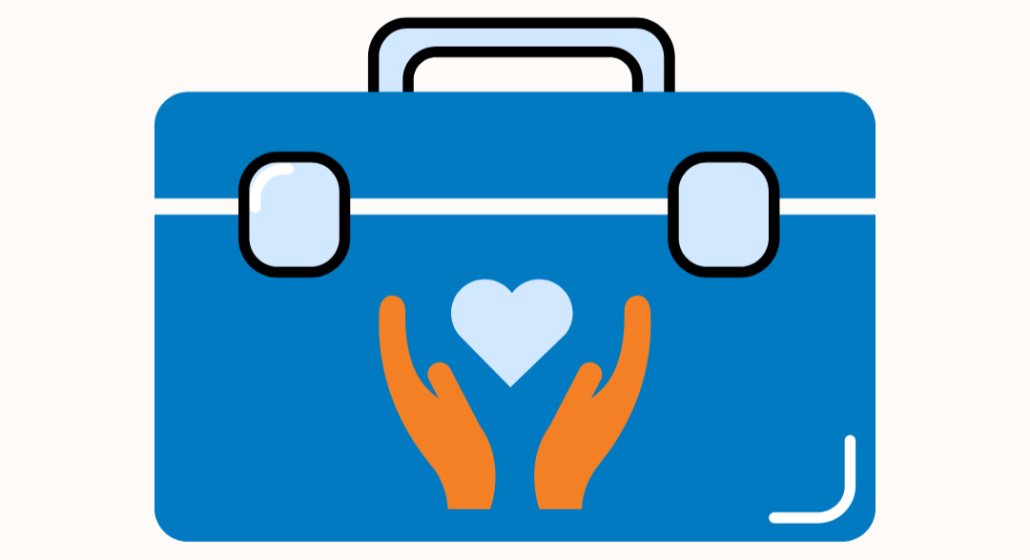
Behaviour Charts
These work in a hierarchical order. This can be displayed in the classroom with a peg representing each student or a group of students. As they complete each behaviour goal, they can move up the chart.
For example, for the global citizenship (universalism) chart, the goals would be the following:
- Learned something new about a global issue (this is the easiest)
- Learned something new about my hosted classmate’s home country/culture
- Supported my classmate to: learn the language, understand my culture better or integrate in my school/local community
- Pointed out/contradicted a stereotype
- Discussed a sensitive/difficult cultural topic (this is the most difficult)
When a large amount of students have worked from the easiest to the most difficult behaviour, the class gets a reward. For example, 5 minutes extra break, phones allowed for 5 minutes, or anything that would reward your students.
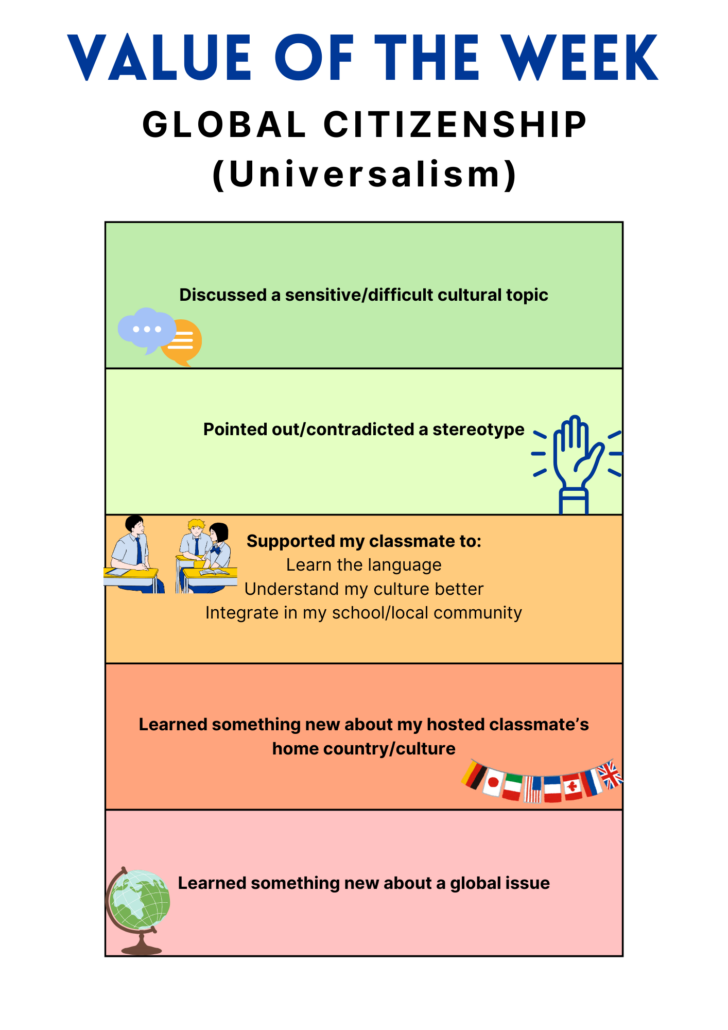
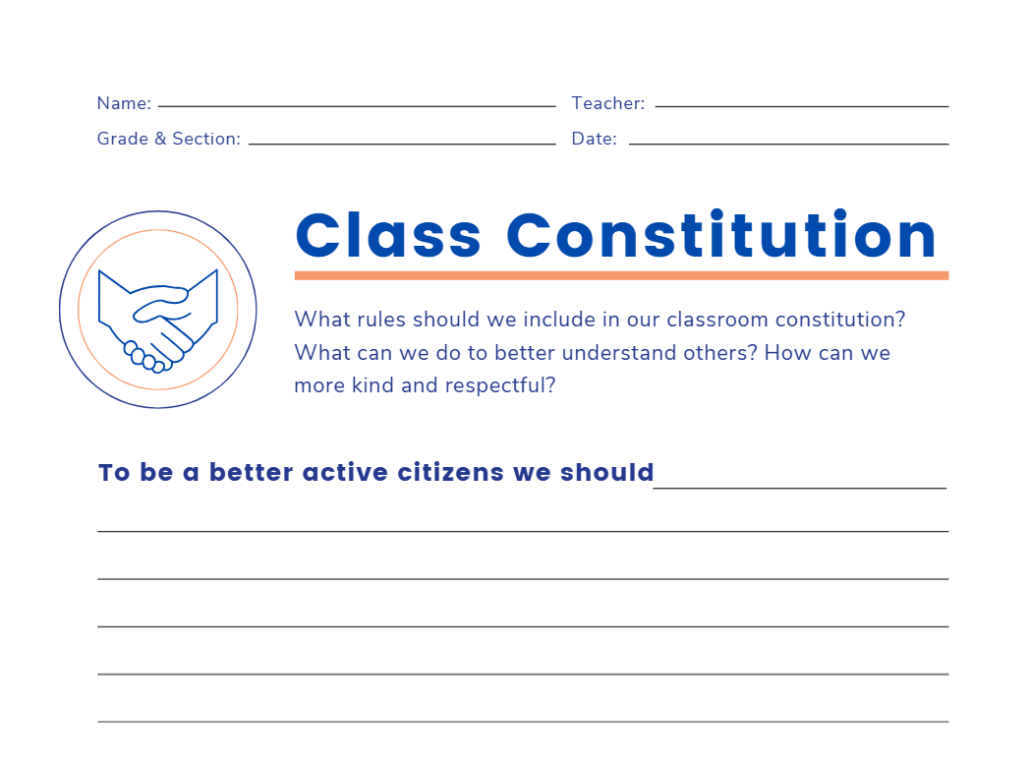
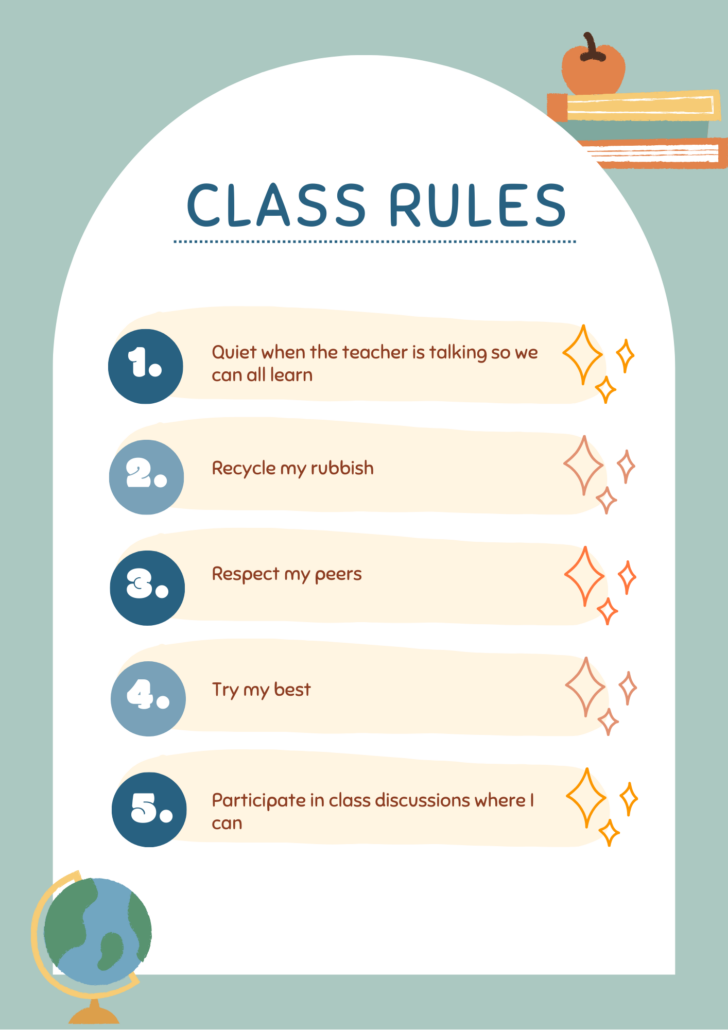
Class Constitution
As a class, create a list of rules based on discussions about inclusion and global citizenship.
When doing this, it is important to be aware of what values are being encouraged, and what values are being discouraged. For example, having a rule of “Be quiet when the teacher talks” encourages conservation values of conformity. So it’s important to make sure this is balanced with encouraging openness to change values, so this could be changed to “Quiet when the teacher is talking so that everyone can learn.”
Here are some examples of good class rules:
- Quiet when the teacher is talking so we can all learn
- Recycle my rubbish
- Respect my peers
- Try my best
- Participate in class discussions where I can
School Volunteering Bulletin
In the classroom or as a school, set up a volunteering board where students can write about their volunteering experiences.
This encourages others to volunteer, and gives students an opportunity to reflect on their experiences and how they were impactful.
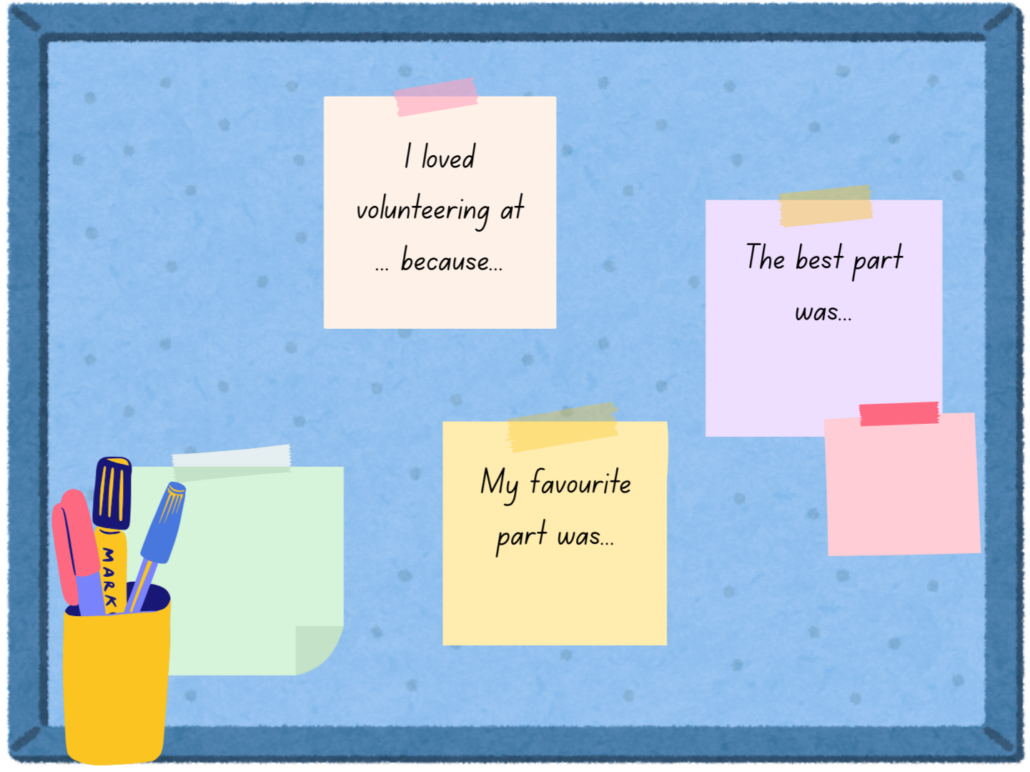
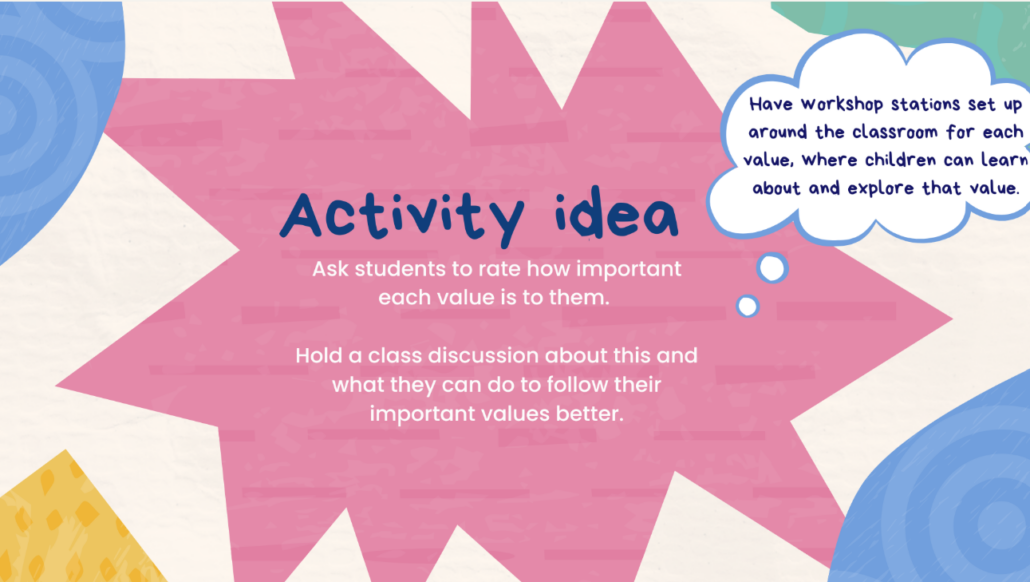
Activity Idea
Ask students to look at the values in the circle and rate how important each value is to them. Use the activity sheet below to help.
Encourage them to learn about their chosen values by setting up a workshop station for each value, where students can learn about behaviours and consequences of that value.
For example, a global citizenship (universalism) station could have debate topics about local or global issues, where discussions about being fair and understanding can take place.

